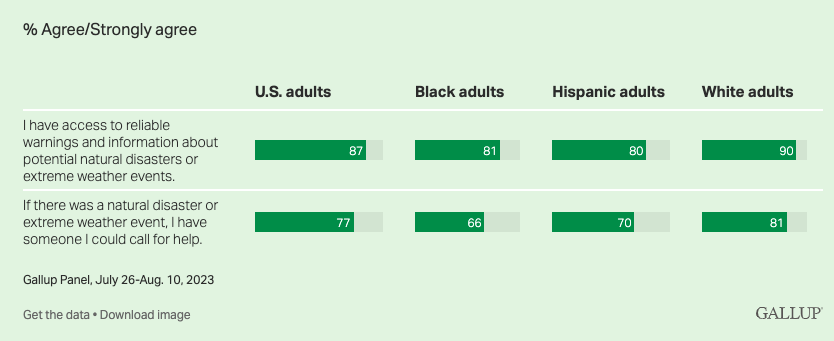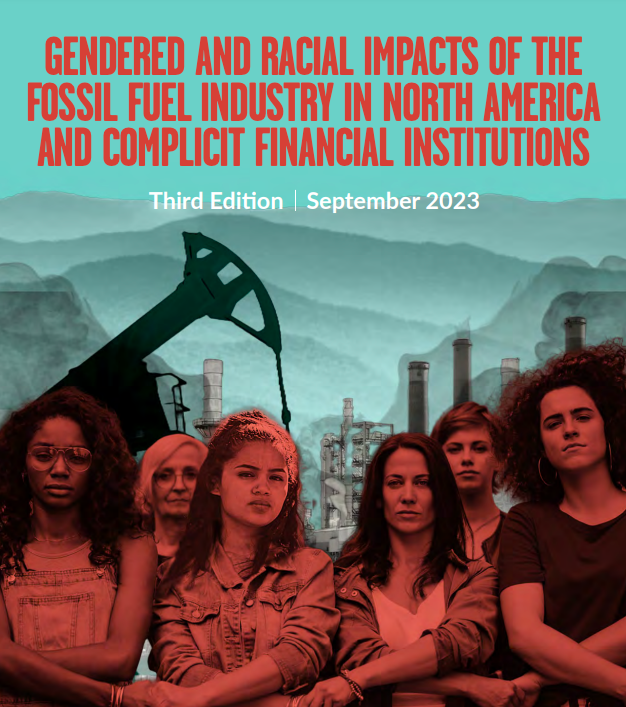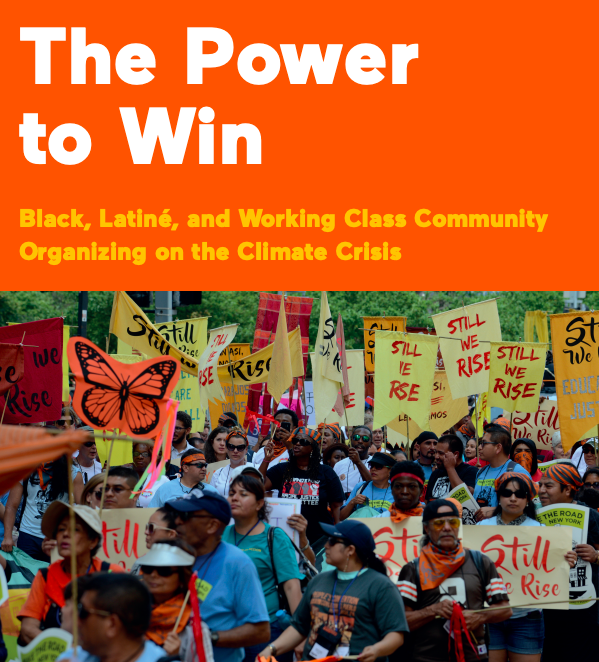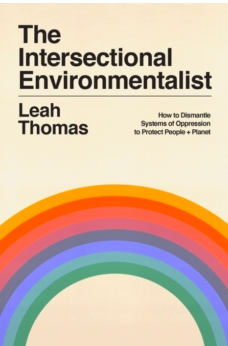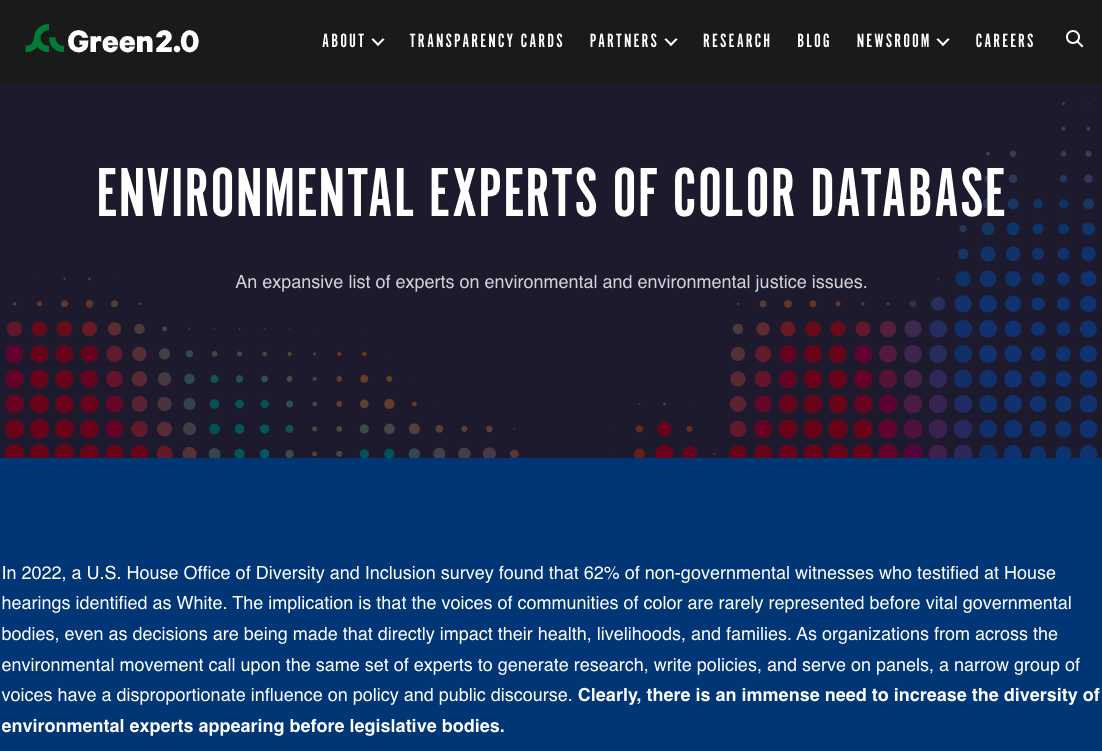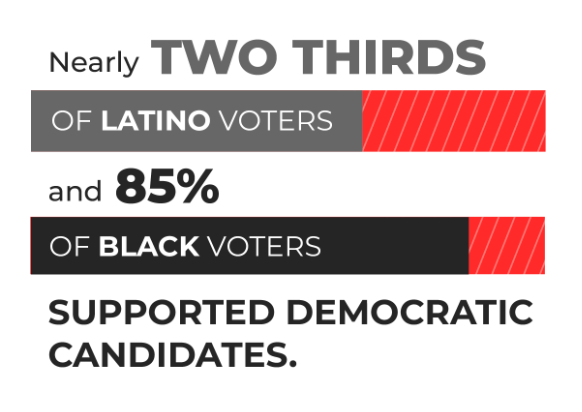Resources
Search below for resources covering the intersection of climate engagement, social science and data analytics.
RESULTS
Environmental Polling Roundup - November 3rd, 2023
This post includes climate and environment headlines, data points, and key takeaways from recent public polls - including new polling about fossil fuel accountability, publicly owned utilities, and frontline communities’ vulnerability to extreme weather.
Poll: Black, Hispanic Americans More Vulnerable to Extreme Weather
Black and Hispanic Americans feel particularly vulnerable to extreme weather, reporting less confidence in their local governments and less preparedness in their communities. Wide majorities of all racial and ethnic groups “agree” or “strongly agree” that they have access to reliable warnings and information about potential natural disasters and that they have someone they can call for help in the event of extreme weather. Still, White Americans exceed both Black and Hispanic Americans by about 10 percentage points on each measure. Between 53% and 56% of Black and Hispanic adults agree they could recover and rebuild, have the resources to do so or have taken steps to prepare their household for a natural disaster or extreme weather event. Meanwhile, between 65% and 72% of White Americans agree across these measures -- indicating their greater degree of preparedness and ability to recover.
Gendered and Racial Impacts of the Fossil Fuel Industry in North America and Complicit Financial Institutions
This report finds an indisputable connection between the fossil fuel industry’s practices and negative impacts to African American/Black/ African Diaspora, Indigenous, Latina/Chicana, and low-income women’s health, safety, and human rights in the U.S. and parts of Canada. Specifically, fossil fuel-derived air, water, and soil pollution impact women’s fertility, mental health, and daily work and responsibilities. The negative effects from fossil fuel activity—including extraction, storage and transportation of coal, oil, and gas often in the form of liquefied natural gas (LNG)—stem from direct pollution of communities by fossil fuel companies’ contributions to industrial carbon dioxide and methane. The climate crisis does not and will not affect everyone equally, as factors such as gender, race, and socio-economic status make certain communities significantly more vulnerable to the increasing threats of climate change. Global inequalities, rooted in structural patriarchy, colonialism, white supremacy, and capitalism, continue to place people of the global majority, and specifically women, at risk.
The Power to Win: Black, Latiné, and Working Class Community Organizing on the Climate Crisis
Organizing the climate crisis’ most disproportionately impacted communities is the missing ingredient to build power required to address the climate crisis. In order to meet the climate crisis and transform our society, we must scale up grassroots organizing. Organizations affiliated with the Center for Popular Democracy that are now leading some of the strongest climate justice organizing in the country include the Green New Deal Network, New York Communities for Change, Make the Road PA, One PA, CASA, the PA statewide climate table, and Florida Rising, and others. This report profiles the work of those groups and others organizing working-class communities of color into the climate movement. Organizing must be: 1) community-led and focus on issues that have tangible impacts for Black, Indigenous, Latiné, and low-income people, 2) rooted in a framework that challenges racial capitalism, and 3) intersect with other issues impacting frontline communities.
Using Radical Re-Imagination to Create a Vision for Our Future
Stories like Wakanda Forever demonstrate the level of violence that colonization, conquest, and genocide have caused throughout generations—and how we can overcome them. When we think about the future of technology and social innovation, we need to do so through an alternative lens, just like in Wakanda Forever, and believe in a future where everyone has the talent, vision, and access to build projects that are sustainable and beneficial to all. We need to visualize a world rooted in abundance that rejects the idea that Blackness and Indigeneity must continue to be considered nonexistent in the Americas. Creating a new vision is just the start. We also must ask ourselves what this fictional speculation about our futures means for us today, especially those of us in positions to influence philanthropic resources for communities of color. It is our responsibility to be proactive about centering those intersecting narratives and debunk the myth that innovation and creativity come only from those who can access or understand the latest technology or benefit from proximity to centers of innovation and power.
#BlackClimateWeek Reading List 2023
Black authors have told stories of the origins and consequences of environmental injustices, given us the richest and most comprehensive collection of poems about nature, and reimagined the future. The Solutions Project is excited to share recommendations to add to your reading list in February and all of the other months of the year. Readings include “The Intersectional Environmentalist” by Leah Thomas, “Black Joy: Stories of Resistance, Resilience, and Restoration” by Tracey Micha’el Lewis-Giggetts, “Becoming Abolitionists” by Derecka Purnell, “An Abolitionist’s Handbook” by Patrisse Cullors, and “Madam C.J. Walker’s Gospel of Giving” by Tyrone McKinley Freeman.
Environmental Experts of Color Database
There is an immense need to increase the diversity of environmental experts appearing before legislative bodies. To address this challenge, Green 2.0’s Environmental Experts of Color Database offers an expansive set of leaders on environmental and environmental justice topics. Our convening power ensures a wide range of experiences and backgrounds. The leaders represented in this database hold invaluable knowledge and a more representative set of perspectives on vital environmental issues. Anyone who is interested in connecting with experts of color to invite them to participate in hearings, events, research opportunities or other potential projects can use this database.
Environmental Polling Roundup - November 18th, 2022
This post includes climate and environment headlines, data points, and key takeaways from recent public polls - including lots of new polling on climate change and the environment as issues in the midterm elections.
The 2022 Midterm Voter Election Poll
Midterm voters of color are the most likely to view climate change as an “urgent problem” and to say that the Inflation Reduction Act was a motivating factor in their vote. 73% of midterm voters say they support the Inflation Reduction Act when it’s described as “the largest investment ever in clean energy in an effort to reduce toxic air and carbon pollution,” including 90% of Black voters and 83% of Latino voters. 62% of midterm voters say that climate change is an “urgent problem we must address now,” including 77% of Black voters and 68% of Latino voters.
Environmental Polling Roundup - October 21st, 2022
This post includes climate and environment headlines, data points, and key takeaways from recent public polls - including new polls focusing on voters of color, young people, and Latinos.
Pagination
- Page 1
- Next page
